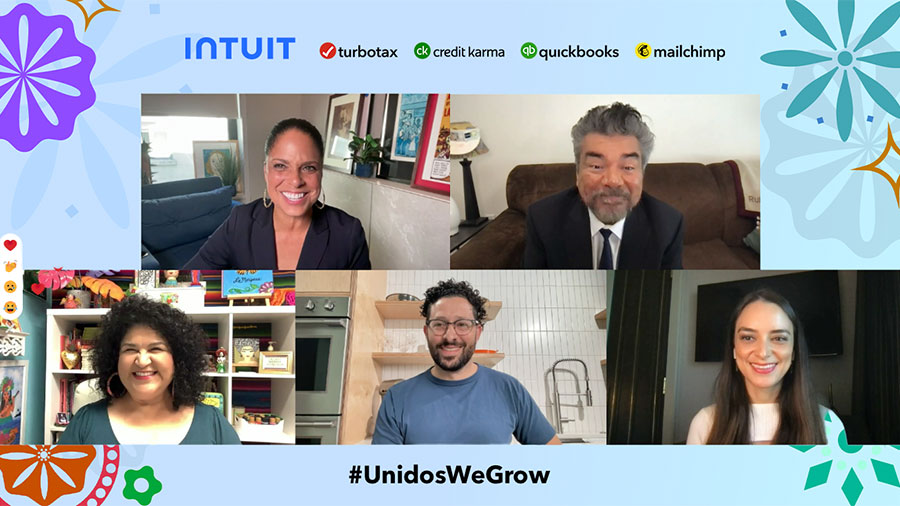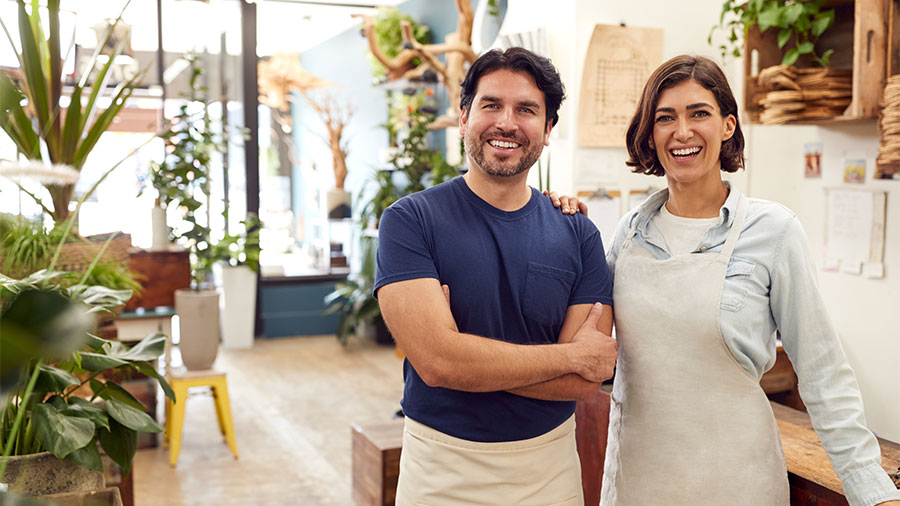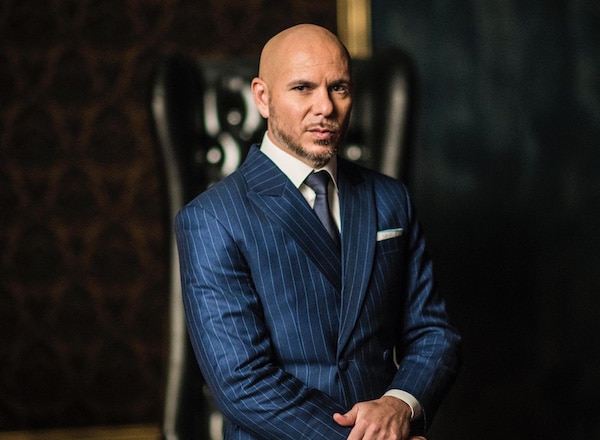It’s worth noting that Americans with roots in Latin America and Spain have many ways to describe themselves, including country-specific identifiers and pan-ethnic terms like Hispanic, Latino, Latina, and the emerging term Latinx. We’re using “Latino” and “Hispanic” throughout this article to describe this diverse community.
Lopez and the other Latino/Hispanic panelists shared hard-earned business tips as well as stories of the overwhelming support they’ve gotten from their communities. The conversation was, itself, a way to unite Latino and Hispanic entrepreneurs and those dreaming of building their own businesses. Up to 4 million Latino workers in the U.S. want to start a new business, according to research published by QuickBooks in June.
Three themes emerged from the roundtable for Latino and Hispanic entrepreneurs: naming their goals, getting comfortable with talking about finances, and leaning on their supporters.
Get clear on your goals
Before you get too far into your small business journey, you should think about your destination. That lets you be intentional about reaching it, The Crafty Chica Kathy Cano-Murillo suggested.
“If you don't have that end goal, you're just going to get lost and be all over the place,” Cano-Murillo said. “Do something every day that will move you closer to working on your business or reaching a certain goal for your business.”
Lopez said he learned to get clear on his future at the age of 12. His parents weren’t around, so he was raised by his grandmother. One day, her husband took young Lopez to work with him. It was a tough slog, digging ditches and moving dirt. Lopez’s hands were blistered long before the car ride home, when his step-grandfather shared why he’d brought the boy along.
“He said, ‘This is what I want you to remember: You can work with your hands, or you can work with your head. And I never had a choice; I had to work with my hands,’” Lopez said. “I decided at that point right there … that I would work with my head.”
Lopez set to dreaming — wild dreams of being a famous comedian and of starring in a TV show. Things that he wasn’t sure were possible. It wasn’t until later that Lopez made an important distinction about his dreams.
“I thought: I dream of being a comedian, I dream of having a show. But those are not dreams. Those are goals,” Lopez said. “If I wanted to breathe underwater, or fly, that's a dream. But I think we look at things that are attainable for other cultures as dreams, and they're not dreams, they’re goals.”
Get in a relationship with your money
Nine out of 10 Hispanic business owners, employees and self-employed people say they’re achieving some or all of their financial goals, according to Intuit commissioned research released Thursday. But 3 in 5 still say they need more help to reach their goals. Castro’s advice: Get close with your money. Real close.
“Money is just another relationship we have in our lives, and it's going to be around forever, so the sooner we start to have and create that healthy relationship with money, the better,” financial expert Castro said.
Starting that positive relationship with your finances may be uncomfortable. Cano-Murillo said that, like Lopez, she grew up in a family living paycheck to paycheck. She realized that she was carrying her money mindset from the past into the present, and it had emotional strings attached.
“It's deeper than the money,” she said. “It goes into your mind, into healing wounds from the past, all of that — to just lead a more positive, healthy life with your business so that you can give more, you can give better, and also be financially stable.”
De Oliveira, who was a finalist on MasterChef Latino, said planning ahead and understanding his cash flow is crucial to keep money from being a mental stressor.
“In my case, you can’t be creative because you're thinking about all these other things. You're thinking about money when you should be thinking about your business and how to make it grow and be creative,” De Oliveira said.
When money in a small business is tight, family may offer to pitch in to help. In fact, 96% of Hispanic business owners and employees said they will offer needed financial support to people in their family when they’re able to, Intuit’s survey found.
Borrowing money from family has both its ups and downs, Castro said. It can be an interest-free way to get the cash flow you need, but it can also create some awkward family dynamics. For those keeping loans in the family, Castro had a few tips:
- Be clear about the terms for repayment, such as deadlines, amounts and interest.
- Lenders, consider the sum a gift — only give it if you’re okay not getting it back, because there’s a chance you won’t.
- Borrowers, for all loans, only accept what you need, then put the money to work for you to get a return on the investment.
Castro also suggests that as you build wealth, you keep the relationship with your money personal, instead of delegating responsibility for your money.
“As you're starting and as you grow and as you continue to grow, always keep your eye on the money. You’re going to have different people come in and help you, but at the end of the day, it’s your money,” she said. “Even if they're trusted professionals, or it's a husband-wife duo, you still need to be involved.”
The good news? Feeling comfortable in a relationship with your money is possible if you decide to commit to it, Castro said.
“No one comes out of the womb with financial wisdom and knowledge. It is a learned skill,” she said. “At some point in your lives, you have to say, ‘I want to learn this, I want to learn finances.’”
Get support from your community
Lopez’s path to success and fame included important lessons about putting himself out there and accepting help. In the 1990s, Arsenio Hall and Sandra Bullock were instrumental in putting Lopez on the map.
“Even though I had struggled to accept the help, once I did, it drew a lot of emotion out of me,” Lopez said. “In tears, just this kind of unbelievable thing that something [like this] would happen to me.”
Fear about rejection, doors slammed in their faces, and brutal no’s can hold small business owners back from asking for help, Lopez said.
“We just can't assume that everything's going to be no,” he said. “And if it is no, then go find somebody that says yes — but don't be afraid of no.”
Lopez said to look instead for open doors and new opportunities — which may be closer than you’d expect. In the Intuit research, 95% of Hispanic entrepreneurs said they’ve benefitted from the support of their local community. De Oliveira, for example, said he was able to get funding for an Instagram-worthy kitchen through a Hispanic broker after the traditional banking route didn’t work out.
Community has been a big part of De Oliveira’s journey to success.
“When I got out of MasterChef and I lost the show on the final, people were just there to support me. My community was just there,” he said. He’s since grown his social media following into the millions.
When Lopez made it big, he demanded recognition for another early pioneer in the comedy and television world from the Hispanic community: Freddie Prinze. Lopez nominated Prinze and sponsored the star on Hollywood’s Walk of Fame in 2004 for his lead role in Chico and the Man.
“I got Freddie Prinze a star in the Walk of Fame, too, because I wasn't going to go in unless he was in, and he wasn't in,” said Lopez, who received his own star in 2006.
While Lopez looked up to Latino and Hispanic comedians like Prinze and Desi Arnaz of I Love Lucy, Cano-Murillo found inspiration for her craft business among women of color whose brands are mainstream giants, like Oprah, Jennifer Lopez, and Tyra Banks.
“My challenge came with wanting to have a Latina brand in the general market that was for everybody. Because, yes, number one, it's for our community,” Cano-Murillo said, but she wanted consumers “to see it all year round, so that our community is reflected in store shelves.”
Getting national retailers to carry products from Latino and Hispanic businesses every month, not just during National Hispanic Heritage Month, is Cano-Murillo’s goal for the community.
“Our community is so supportive of each other because we see through social media our pain, our struggles, through stories, the tears, of what we're going through to make this work,” Cano-Murillo said.
Growing stronger, together
Whether it’s buying Latino and Hispanic products from a national retailer, encouraging the runner-up of a reality cooking show, passing along financial tips or even sponsoring a star on the Walk of Fame, panelists at the “Unidos We Grow” Roundtable all shared stories that underscored the strength and support from Hispanic communities.
As Cano-Murillo said, “I guarantee in our community, it's been nothing but support.”
If you missed Intuit’s live Hispanic Heritage Month event, you can watch the full replay of the roundtable on your own schedule.
This content, report and materials are for informational purposes only and should not be considered legal, accounting, financial, investment, or tax advice, or a substitute for obtaining such advice specific to your business. Additional information and exceptions may apply. Applicable laws may vary by state or locality. No assurance is given that the information is comprehensive in its coverage or that it is suitable in dealing with a customer’s particular situation. Intuit Inc., or its affiliates do not have any responsibility for updating or revising any information presented herein. Accordingly, the information provided should not be relied upon as a substitute for independent research. Intuit Inc., or its affiliates do not warrant that the material contained herein will continue to be accurate nor that it is completely free of errors when published. Readers should verify statements before relying on them.
We provide third-party links as a convenience and for informational purposes only. Intuit Inc. or its affiliates do not endorse or approve these products and services, or the opinions of these corporations or organizations or individuals. Neither Intuit Inc. nor its affiliates assume responsibility for the accuracy, legality, or content on these sites.












